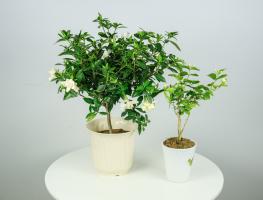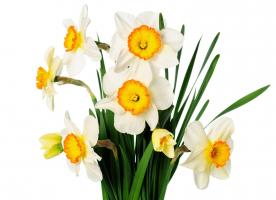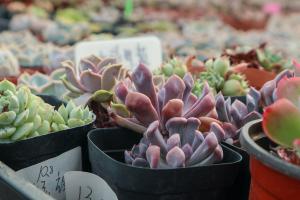Is it Better to Water Plants at Night or Day?
One of the most fundamental practices in gardening is proper watering, as it is essential to maintaining the health and vitality of plants. However, the question remains, is it better to water plants at night or during the day? This article will explore the pros and cons of both methods to help you decide which is the better option for your plants.
Watering Plants During the Day
Watering plants during the day has several advantages over watering at night. Firstly, watering during the day ensures that plants receive the maximum amount of sunlight and, therefore, can photosynthesize efficiently. Additionally, watering during the day allows the foliage to dry quickly, reducing the risk of fungal diseases, such as mildew, that can thrive in humid conditions. Lastly, watering during the day means that the moisture absorbed by the soil can provide a cooling effect during the hot summer months.
On the other hand, watering plants during the day also has a couple of downsides. The water can evaporate quickly in the sun and wind, meaning that some of it may not reach the roots of the plant. Also, watering during the hottest part of the day can potentially scorch or damage the plant's leaves due to the intense heat.
Watering Plants at Night
Watering plants at night has some benefits over watering during the day. Firstly, the water has more time to soak into the soil overnight, allowing it to penetrate deeply into the roots of the plant. Secondly, watering at night helps to conserve water as there is less evaporation due to the lack of sunlight and wind. Lastly, watering at night means that the plants have enough time to absorb the moisture overnight, leading to healthier, more robust growth!
However, watering plants at night also has its downsides. One of the most significant is that the moisture-rich soil can attract pests and fungal diseases, such as slugs and snails, that thrive in damp conditions. Additionally, the lack of sunlight and warm temperatures means that the water on the plants and soil may not dry quickly, increasing the risk of fungal diseases and mold growths.
Conclusion
So, which is better, watering at night or during the day? Ultimately, it depends on various factors, such as the climate, the type of plants, and soil conditions. In general, watering plants during the day has more advantages as it allows for efficient photosynthesis, dries leaves quickly, and cools the plants during the hot summer months. However, if you live in a dry climate or have plants that prefer moist soil, watering them at night may be the best solution. Remember, the essential thing is to water your plant regularly and ensure that they receive the appropriate amount of water according to their needs!

 how many times do yo...
how many times do yo... how many planted tre...
how many planted tre... how many pine trees ...
how many pine trees ... how many pecan trees...
how many pecan trees... how many plants comp...
how many plants comp... how many plants can ...
how many plants can ... how many plants and ...
how many plants and ... how many pepper plan...
how many pepper plan...






























